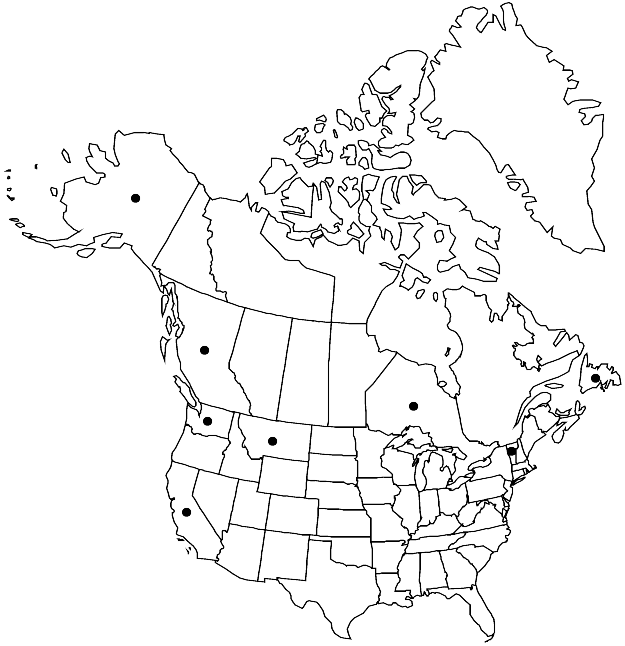Philonotis yezoana
Bull. Soc. Bot. Genève, sér. 2, 1: 123. 1909.
Plants large, in dense tufts or intermixed with other bryophytes, dark green, rufous proximally. Stems 1–3 cm, erect, simple or sparingly branched, tomentose proximally. Leaves laxly erect-appressed when dry, somewhat incurved and erect-spreading when moist, ovate-lanceolate, 0.8–1.2 mm; margins narrowly revolute basally, plane distally, serrulate throughout, teeth single; apex sometimes acuminate; costa subpercurrent to excurrent, abaxial surface smooth; laminal cells papillae 1, centric, on both sides (more prominent on adaxial side); basal cells subquadrate to quadrate, 15–20 × 8–10 µm; distal cells rectangular, 15–26 × 6–8 µm. Specialized asexual reproduction by slender brood branches in leaf axils. Sexual condition dioicous; perigonia somewhat gemmate. Sporophytes unknown.
Habitat: Rocky cliffs, steep slopes, wet or dry sites
Elevation: low to high elevations (0-2700 m)
Distribution

B.C., Nfld. and Labr. (Nfld.), Ont., Alaska, Calif., Mont., Vt., Wash., Wyo., e Asia (Japan, Korea).
Discussion
Philonotis yezoana is easily recognized by its dark green color and centrally papillose laminal cells.
Selected References
None.